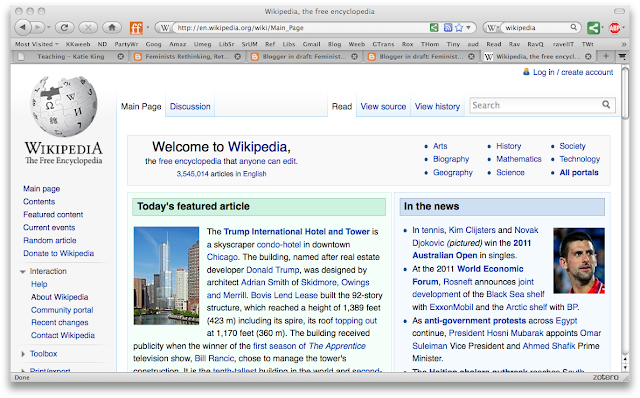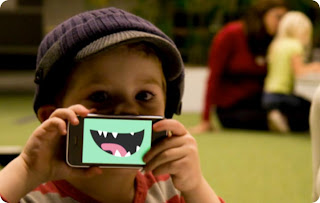Wednesday, February 2 – Share This! our handbook
• GO OVER EVERYTHING YOU DID LAST WEEK as instructed in last Wednesday's post.
• read all of Zandt, Share, choose the chapter that excites you the most and become an expert on it
• brainstorming and team building
FOR CLASS TODAY YOU SHOULD HAVE READ ALL ZANDT AND ALSO HAVE WITH YOU:
=a short paper, two paragraphs redrafted about commercialization, commodification, privatization.
=a paragraph summarizing notes on educational uses of social media, from reading syllabus and links, and notes about reading Zandt, and following up work missed last week online.
=a list of feminist ideas and tools used to think about these.
===
===
Thoughts on the Wikipedia?
Recent article in the NY Times says:
"Jane Margolis, co-author of a book on sexism in computer science, 'Unlocking the Clubhouse,' argues that Wikipedia is experiencing the same problems of the offline world, where women are less willing to assert their opinions in public. “In almost every space, who are the authorities, the politicians, writers for op-ed pages?” said Ms. Margolis, a senior researcher at the Institute for Democracy, Education and Access at the University of California, Los Angeles.
"According to the OpEd Project, an organization based in New York that monitors the gender breakdown of contributors to “public thought-leadership forums,” a participation rate of roughly 85-to-15 percent, men to women, is common — whether members of Congress, or writers on The New York Times and Washington Post Op-Ed pages.
"It would seem to be an irony that Wikipedia, where the amateur contributor is celebrated, is experiencing the same problem as forums that require expertise. But Catherine Orenstein, the founder and director of the OpEd Project, said many women lacked the confidence to put forth their views. “When you are a minority voice, you begin to doubt your own competencies,” she said."

See also:
• change.org on women not editors on the Wikipedia
• BBC World Service's Lesley Curwen from Business Daily interviews Sue Gardner, executive director of Wikipedia. They discuss recruiting women to write for the Wikipedia.
===














